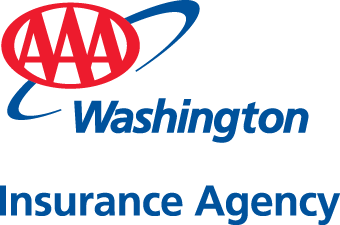Before you buy your first home, learn the basics about homeowners insurance
As a new homebuyer, you have plenty on your to-do list: scheduling the movers, buying new furniture, setting up utilities and internet, possibly doing some renovations. One item that you need to add to the must-do list is home insurance.
If you have a mortgage, the lender will require home insurance. While home insurance isn’t a legally required condition of owning a home, practically speaking, you’ll want a robust amount of coverage for any home you own.
The good news is that home insurance is among the most widely available types of insurance. You’ll have plenty of options if you get your home insurance through AAA Washington. The downside is that home insurance can be nuanced, especially in the Pacific Northwest. You might be surprised by all that a standard policy will cover. Then again, given how complicated it can be, you may think you are covered for a particular problem, only to find out later that you aren’t.
So, it’s worth learning the basics of home insurance for new homeowners to ensure that you, your family, people who visit or work on your home, your personal property and the house itself are protected.
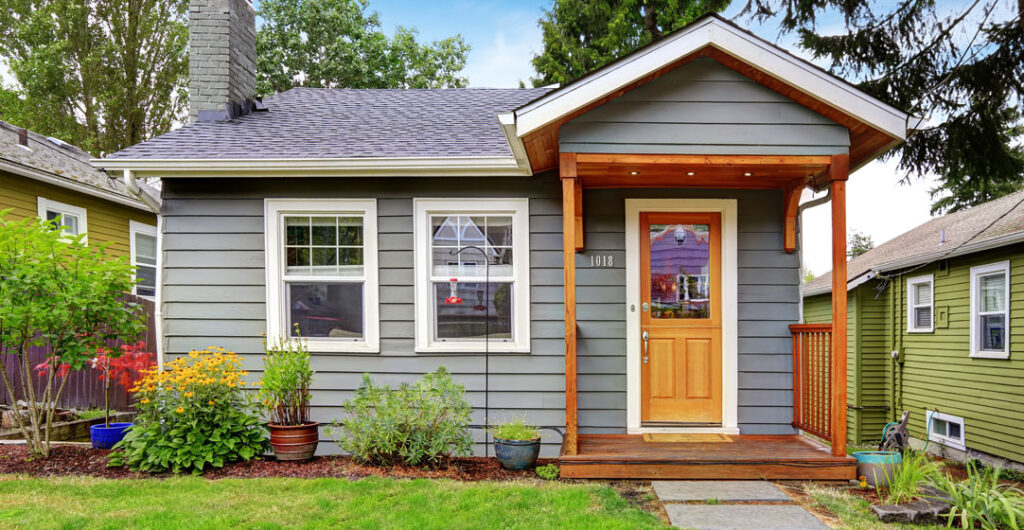
What is home insurance?
A homeowners’ policy protects the new homebuyer in two major ways:
- It provides coverage to repair or replace your home and personal property in several different scenarios.
- It provides personal liability coverage to you and your family when a person is injured on your property, or if that person’s property is stolen or damaged.
The first main type of coverage protects your home and property, paying you to fix or replace both after a sudden or unexpected problem. The second major type protects you legally and financially by covering legal and investigative costs, medical bills, etc., in case another person has an injury or a property loss at your home.
When does my policy go into effect?
Generally, immediately. So long as the homeowner’s policy conforms with an insurance company’s guidelines and rules, AAA Washington agents have authority to make all the arrangements to put the home insurance policy in force.
When am I covered for property damage?
A standard home insurance policy will provide coverage to your home and personal property under various scenarios. You’ll be covered if your home or personal property is damaged or destroyed in a fire, by hail or other covered natural disaster. Homeowners’ policies won’t usually cover problems that develop over time or from neglect, such as persistent leaks in the roof and cracks in the foundation.
Here are some scenarios where you will likely be covered by your home insurance policy:
- Golf-ball sized hail damages your siding;
- A lighting strikes catches your detached garage on fire;
- Someone spray paints your fence with graffiti;
- A person steals your rider mower and tools from the shed;
- Your dishwasher malfunctions and dumps water all over your kitchen floor.
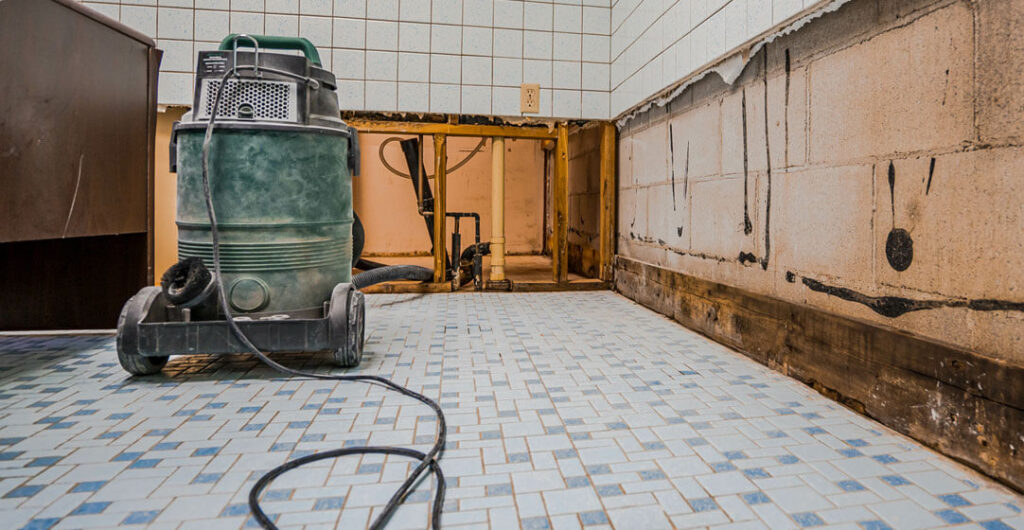
What are the most common claims?
According to AAA Washington insurance agents, the most common type of claim involves water damage to a home. That can be a pipe bursting, a failing dishwasher line or leaking water heater. One thing to note, though: Not all water damage is covered by a homeowners’ policy. (Find more information on water damage and homeowners’ policies.)
Other common claims include:
- Trees, limbs and other objects falling on the house and other buildings;
- Personal items lost or stolen from your home;
- Fire damage.
Does a homeowners policy cover theft or vandalism?
Yes, it does. Typically, you will be covered if someone vandalizes your home, other detached buildings, the fence or even individual trees and shrubs. Likewise, your policy will cover theft of your personal property. Note, however, that the payout to replace damaged or stolen items is usually capped at a fixed amount, such as to a maximum of $500 per item. If you own expensive jewelry, high-end electronics, rare sports memorabilia, original art, rare coins or other valuable heirlooms, you should consider investing in specialized insurance. (Find more on insuring heirlooms and jewelry.)
Will my home policy cover damage/theft of my car?
No, it won’t. The homeowners’ policy won’t cover the damage, theft or vandalism to your cars, trucks, motorcycles and any vehicle that requires a registration to drive it on the road. (You will need to add comprehensive auto or motorcycle insurance to cover road vehicles.) However, a homeowners’ policy will cover vehicles used to service your property, such as rider mowers.
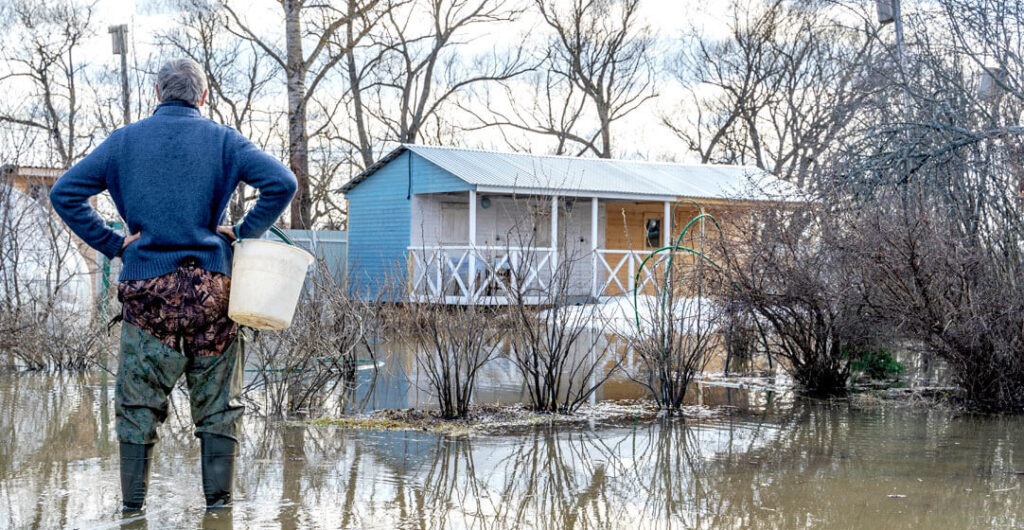
When won’t I be covered?
Homeowners’ policies will never cover:
- Flooding—defined by the Federal Emergency Management Agency as an inundation involving 2 acres or two or more properties—is never covered by a homeowners’ policy. You’ll need a separate standalone flood policy either through the national flood insurance program or via private flood insurance. (Find more on flood insurance.)
- Earthquake damage will not be covered by a homeowners’ policy. (Note that Pacific Northwest residents, including residents of western Washington, are at a significant risk for earthquakes.) You’ll need separate earthquake insurance to protect your property from damage in an earthquake. (Find more on earthquake insurance.)
- Water and sewer backups are not covered. A water-damage claim will not be paid if the discharge was caused by backups in the interior plumbing or in the lines that run from your home to the municipal main lines. However, you can affordably add water and sewer backup coverage to your homeowners’ policy. (Find more on water and sewer backup insurance.)
- Routine maintenance to the home or appliances is never covered by a homeowners’ policy.
Tip: Homeowners’ policies can be nuanced and confusing. You should pay close attention to what the policy excludes. It is worth periodically reaching out to an insurance agent to go over the coverage. Ask a lot of questions and go over scenarios. Often, you can affordably fill holes in the policy. (Find a AAA insurance agent.)
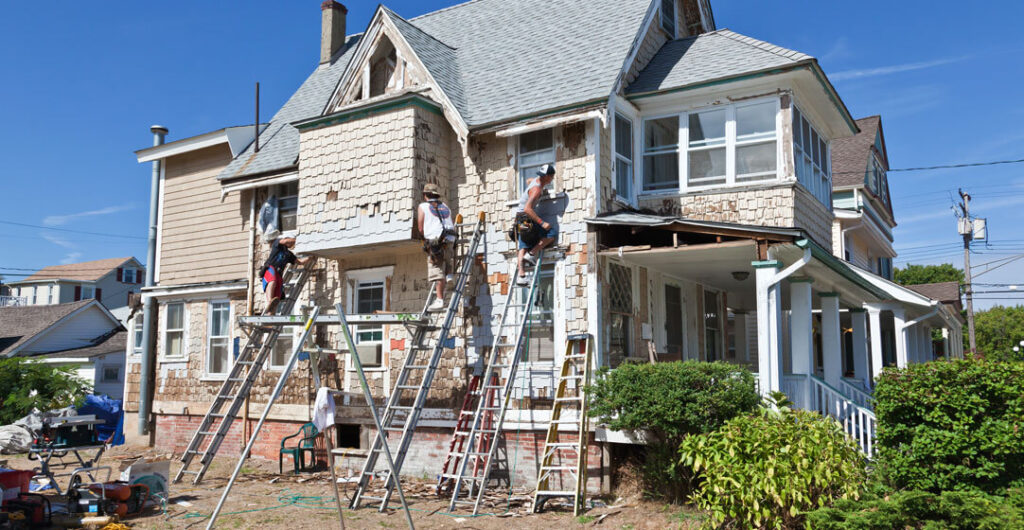
5 Major Coverage Types
A homeowners’ policy typically contains five major types of coverage. The first three types will cover damage or loss of your home or property. These include:
- Damage to structures. This coverage includes the main house, the garage, gazebos, retaining walls, fences, electrical systems, plumbing. It can also pay replacement costs for individual shrubs, gardens and trees on the property.
- Damage to personal property. This would provide you with money to replace your furniture, clothing, electronics, jewelry and heirlooms, etc.
- Additional living expenses. This will pay for reasonable costs if you are temporarily displaced from the home, and need to pay for a hotel stay, meals and other expenses.
- Liability coverage. This coverage will pay claims up to the policy’s liability limit, as well as pick up the cost to investigate, settle and defend you if you are sued.
- Medical expenses coverage. This will cover reasonable medical expenses for people injured on your property.
The final two major coverage types—liability and medical—protect you legally and financially by paying out claims to cover damages if someone (a non-resident of the property) is injured at the home, or their property is damaged.

When covering damage, a home insurance policy will pay out a claim under a covered scenario up to its coverage limit, minus the deductible. A deductible is the amount that the new homebuyer has agreed to pay. For example, if your policy has a $500 deductible, you’d pay the first $500 out-of-pocket before the insurance begins to cover the claim. Note, however, that “the additional living expenses” benefit in a homeowners’ policy typically carries no deductible.
Tip: Liability coverage is a particularly important type of insurance, as it can protect your home, retirement savings and investments from catastrophic financial loss. Many home insurance policies provide at least $100,000 in personal liability. You can often increase that amount on the policy to up to $500,000. It’s also possible to increase your personal liability to $1 million or more by adding your home and auto policies to an umbrella policy. (Learn more about umbrella policies.)

What affects the cost of homeowners’ insurance?
Several factors can affect the cost of home insurance. The good news it’s possible to lower your costs.
Here are some factors that will affect the cost of your premiums:
- The replacement cost of your home. The more expensive that cost, the higher your premium. In other words, you will pay higher premiums to insure a $1 million home than a $300,000 home.
- Your deductibles. It is usually possible to raise or lower the deductible on the coverage for the dwelling and personal property. If you opt for a high deductible on your policy (in other words, you agree to pay more before the insurance starts paying the claim) your premium will tend to be lower.
- Your location. Your premiums can also be affected by where you live. People who live in a city with a municipal fire departments and EMS close to the home tend to pay lower premiums than people living in remote rural areas where emergency services tend to be farther away.
- Your credit scores. People with higher credit scores tend to qualify for lower premiums. (In 2022, a court in Washington state reversed a ban on using credit scores in calculating insurance premiums, so it’s now possible to get a discount if you maintain a high credit score.)
- Bundling policies. You can usually save money by bundling your home insurance policy with auto and other insurance. As a AAA Washington member, you can save up to 8% by bundling your insurance.
Now that you’re a new homebuyer, your home will likely be your single-largest asset for years to come. It’s certainly worth the time to consult with an insurance agent at least once a year to go over your coverage and ensure that you are fully protected. Reach out to a AAA agent to get a home insurance quote and learn more about all your options as new homebuyers.
—Written by AAA Washington
—Photo: AdobeStock

